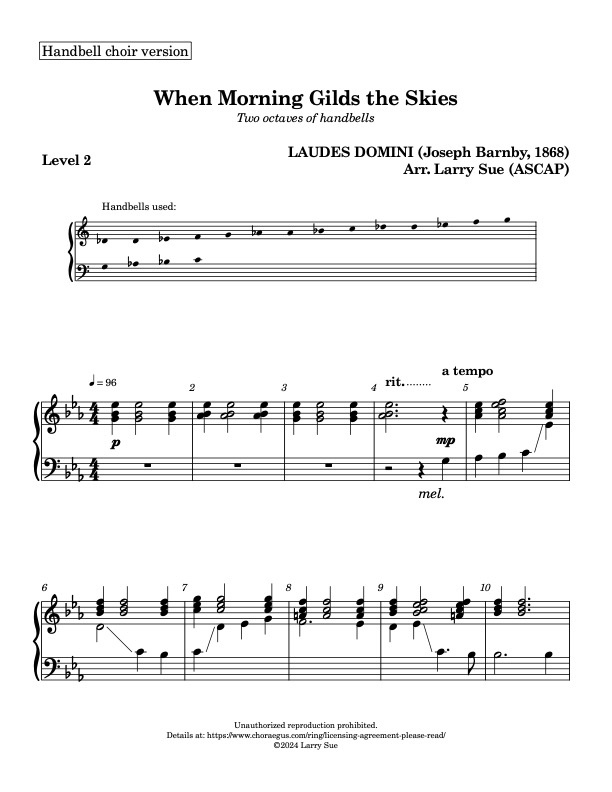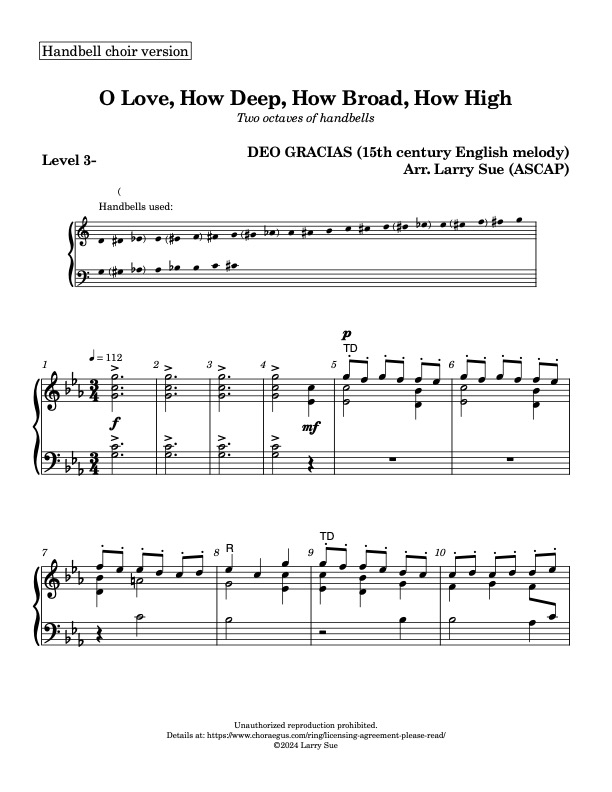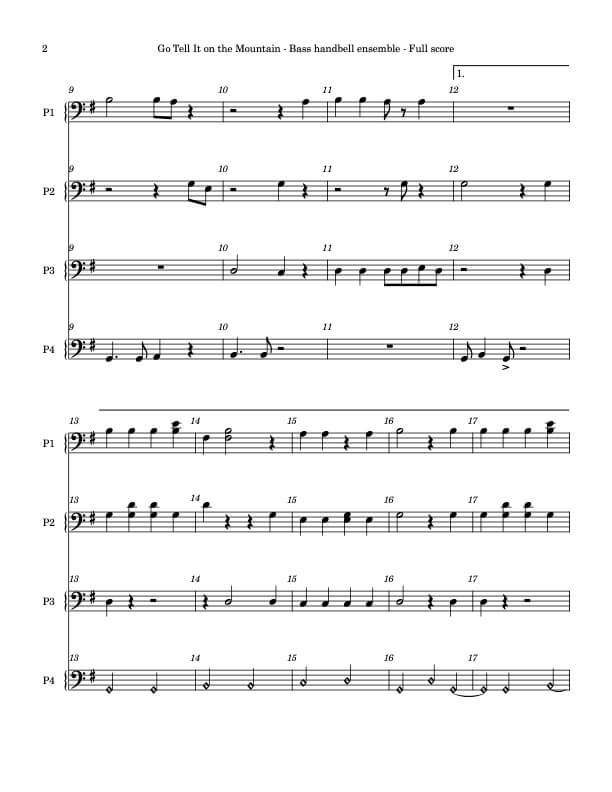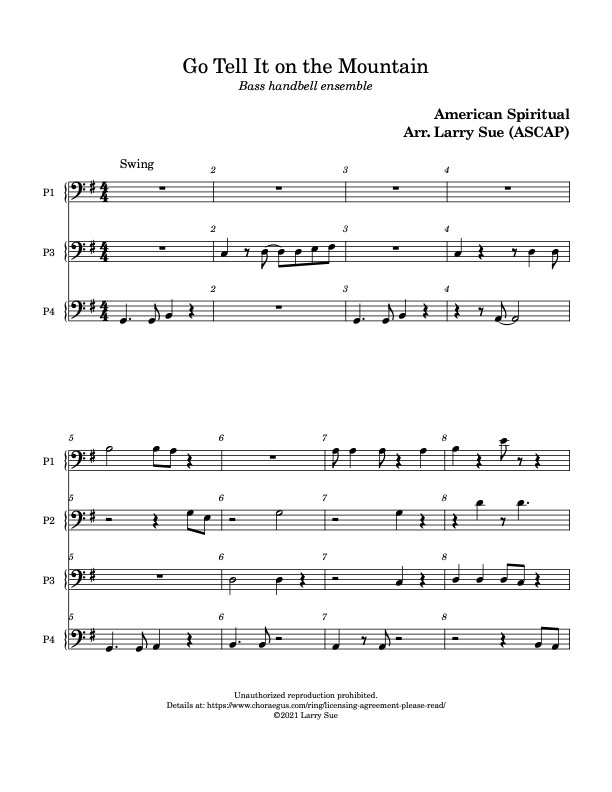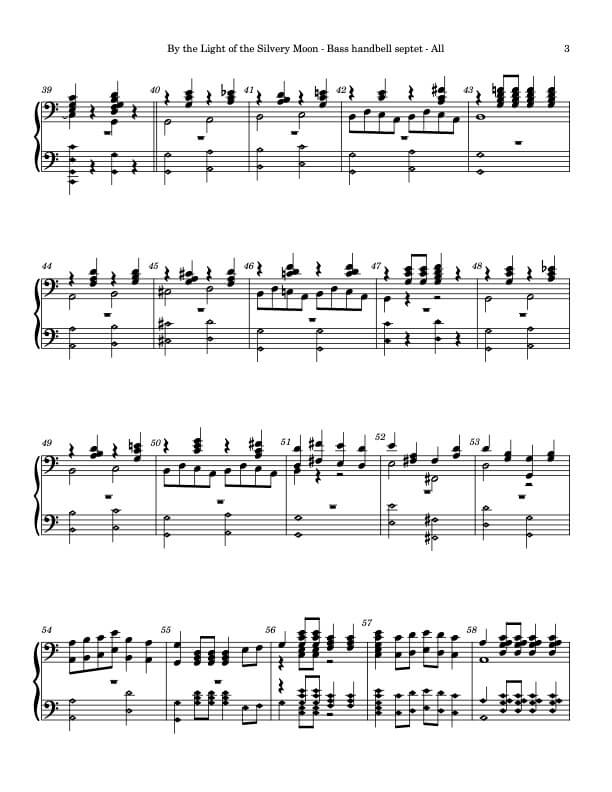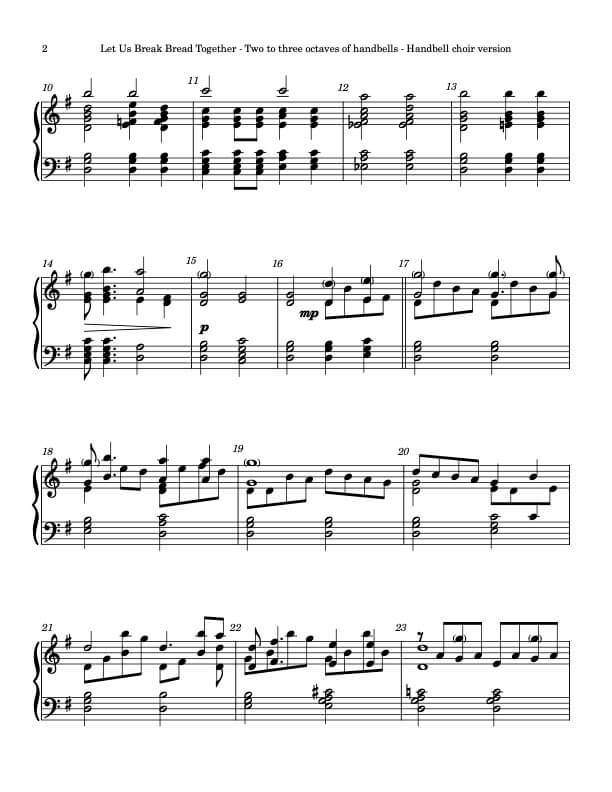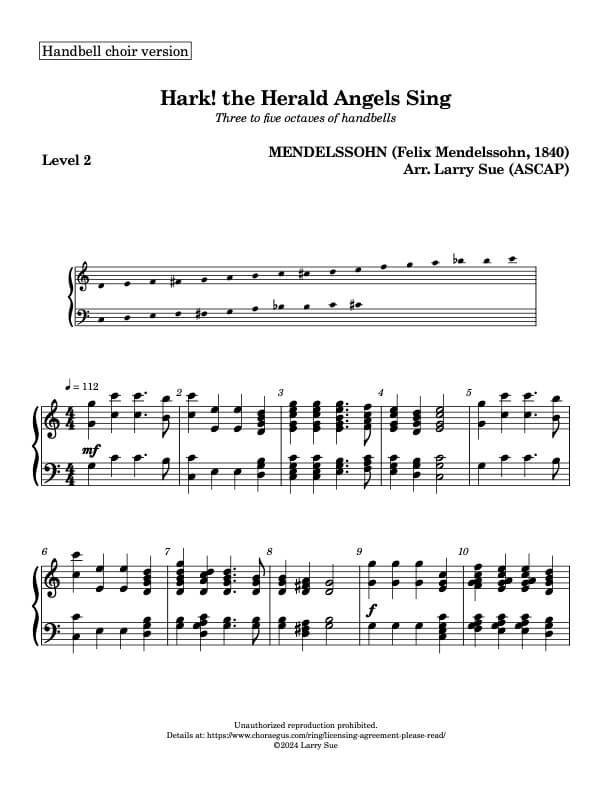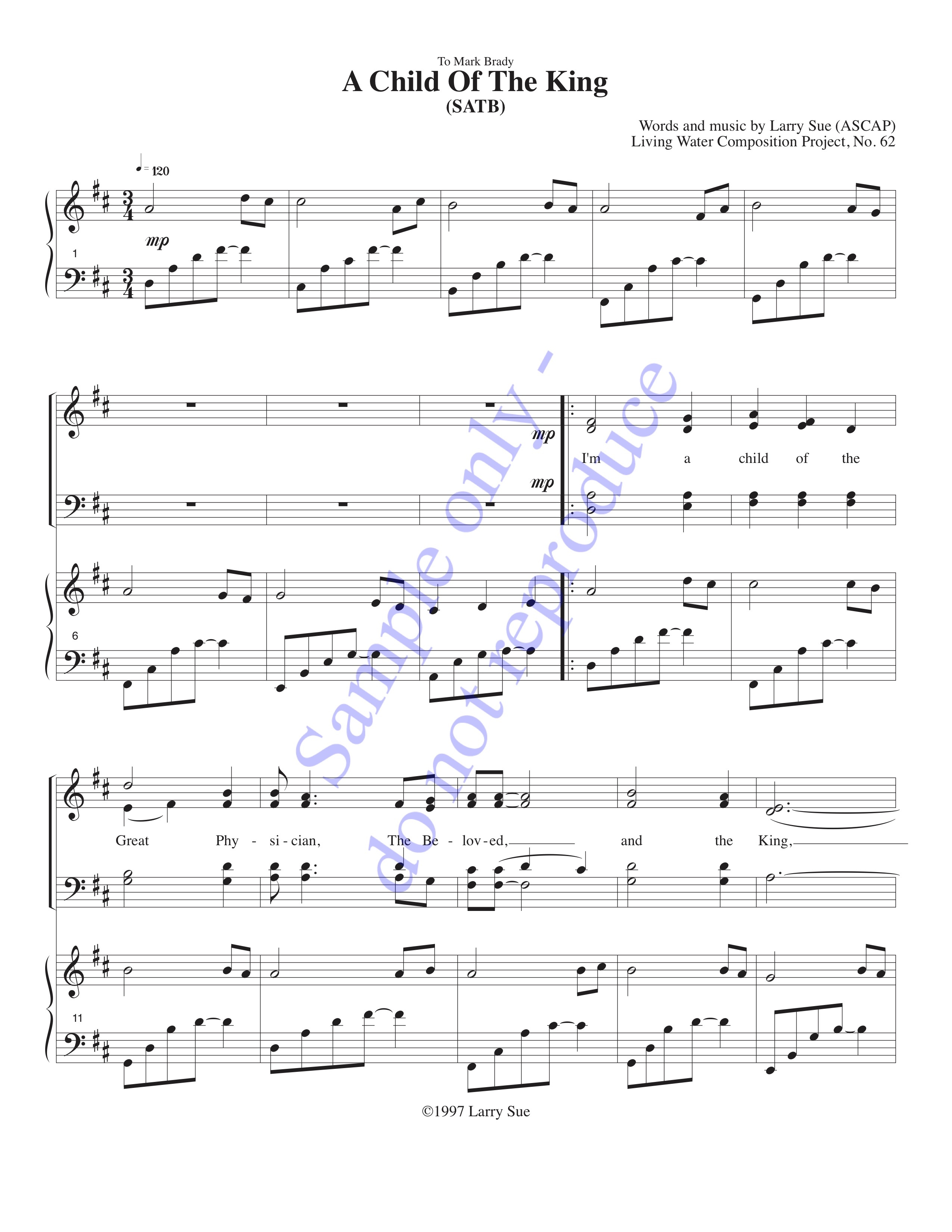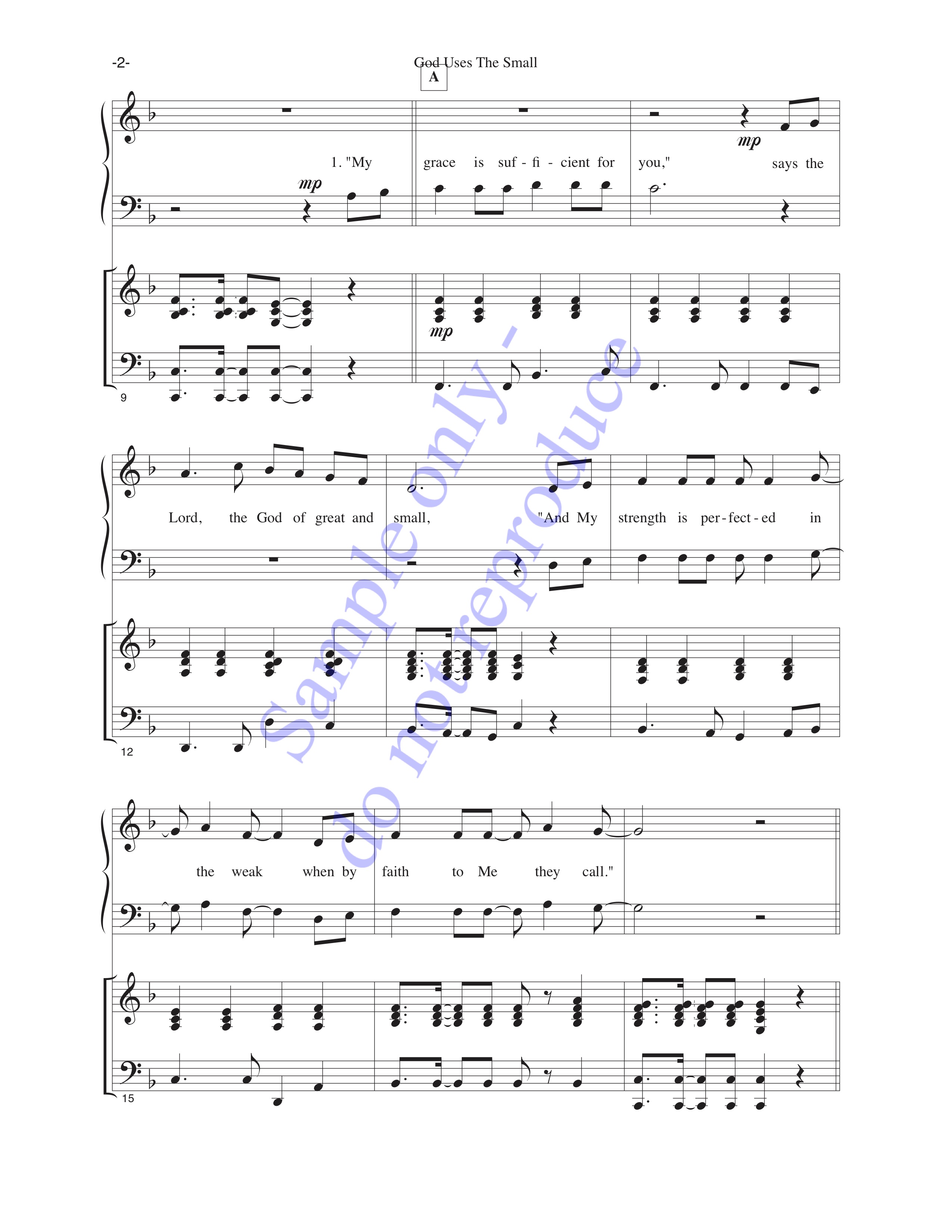Ukrainian Bell Carol was first known as “Schedryk”/«Щедрик» when Mykola Leontovych wrote it in 1916. And then… in 1941, Peter Wilhousky wrote the lyrics entitled “Carol of the Bells”, the title under which credit is usually given in the United States. We present our arrangement of Leontovych’s composition under its “more original” title. We think …
Tag: AGEHR Level 4
This composition is a handbell choir score rated at AGEHR Level 4. Most time signatures, including complex ones, are allowed, though with possible limitation on how frequently meter changes occur. Most beat subdivisions being permissible. All articulations are permitted.
Feb 28
To God Be the Glory (TO GOD BE THE GLORY) (Handbells, 3 or 5 octaves, Level 4)
Fanny Crosby and William Doane were a “dynamic duo” of hymn-writing in the decades on either side of the year 1900. She wrote the words, and he composed the music. One of their best-known hymns is To God Be the Glory Personal note: This was the favorite hymn of Larry’s great-aunt Pat. Our new arrangement …
To God Be the Glory (TO GOD BE THE GLORY) (Handbells, 3 or 5 octaves, Level 4)
Fanny Crosby and William Doane were a “dynamic duo” of hymn-writing in the decades on either side of the year 1900. She wrote the words, and he composed the music. One of their best-known hymns is To God Be the Glory Personal note: This was the favorite hymn of Larry’s great-aunt Pat! To God be …
Winter Dance (Handbells, 7 octaves plus handchimes, 2 octaves, Level 4)
Seiichi Kyoda composed this wonderful piece. His group Uttara-Kuru performed Winter Dance with a synthesis of traditional Japanese instruments (shakuhachi, koto, etc.) and electronica. The picture is of the citizens of a remote village celebrating life with a community dance. This is the version of Winter Dance being performed at the 2025 Bay View Week …
Apr 24
Banana Passacaglia (handbells, 3 or 5 octaves, Level 4)
One day on Facebook, a post appeared: Replace one word in the title with “banana.” What’s your favorite handbell piece? With one reply being: Banana Passacaglia And then: I would like for Larry Sue to get to work on this immediately. So, to make a not-so-long story short, it took a couple of days to …
Banana Passacaglia (handbells, 3 or 5 octaves, Level 4)
One day on Facebook, a post appeared: Replace one word in the title with “banana.” What’s your favorite handbell piece? With one reply being: Banana Passacaglia And then: I would like for Larry Sue to get to work on this immediately. So, to make a not-so-long story short, it took a couple of days to …
Mar 27
Boat on Lake Tai (太湖船) (Handbells, 3 to 5 octaves, plus handchimes, 2 octaves, Level 4-)
Lake Tai is a large lake near Shanghai. It’s in a central location, so it has many commercial connections; because it’s quite shallow, it’s a peaceful place to visit. The Chinese folk song Boat on Lake Tai (太湖船) draws a picture of a peaceful scene, where a small boat glides across the water. You’ll enjoy …
Boat on Lake Tai (太湖船) (Handbells, 3 to 5 octaves, plus handchimes, 2 octaves, Level 4-)
Lake Tai is a large lake near Shanghai. It’s in a central location, so it has many commercial connections; because it’s quite shallow, it’s a peaceful place to visit. The Chinese folk song Boat on Lake Tai (太湖船) draws a picture of a peaceful scene, where a small boat glides across the water. You’ll enjoy …
Mar 02
Flower Drum Song (凤阳花鼓) (for handbells, 3 or 5 octaves, Level 4)
Flower Drum Song Feng Yang Hua Gu (凤阳花鼓) may have been composed as far back as the Ming Dynasty (1368-1644 A.D.). It comes from Fengyang County in Anhui Province, and is said to have been sung by people affected by floods in that region as part of asking for donations to recover their living. Here’s …
Flower Drum Song (凤阳花鼓) (handbells, 3 or 5 octaves, Level 4)
Flower Drum Song Feng Yang Hua Gu (凤阳花鼓) may have been composed as far back as the Ming Dynasty (1368-1644 A.D.). It comes from Fengyang County in Anhui Province, and is said to have been sung by people affected by floods in that region as part of asking for donations to recover their living. 左手锣右手鼓手拿着锣鼓 …


